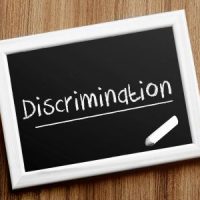What is an “Adverse Employment Action?”

There are a lot of things that employers can’t do, when it comes to discrimination. They can’t retaliate against you or discriminate on the basis of being a member of a protected class such as your gender, sexuality/sexual orientation, race/color, religion/creed, national origin/ancestry, age, disability, age (over 40), gender identity, gender expression, medical condition, genetic information, marital status, military or veteran status.
Sometimes, discrimination is obvious, and comes in the form of saying things, or creating uncomfortable and hostile work environments.
But other times, discrimination comes in the form of things that employers do or don’t do at work. In other words, the “bad stuff” that can happen at work, that is happening because of discrimination or harassment.
Adverse Employment Actions
These are called adverse employment actions. They are important to know and understand, because discrimination often doesn’t come in the form of insults or demeaning comments. It often is masked, in the form of being deprived of benefits at work.
You already know some of the more obvious adverse employment actions. The main ones are not being hired, being fired or laid off, being demoted, or being refused promotions. These are pretty obvious, and most anybody who feels they have suffered any of these because of race, gender, color, disability or age, knows that they are being wronged.
But employers do other things too, that are adverse employment actions. Many are actually quite subtle.
For example, adverse employment actions may include:
- Giving you more difficult assignments, or tasks that it is harder to accomplish, thus affecting your evaluations or your work performance. That includes just giving you more work than everybody else—in other words: setting you up to fail.
- Excluding you from training or special projects, that could help you advance at work
- Refusing you extra break time or longer breaks, if those are given to other employees and not you
- Giving you less favorable employee evaluations or reviews, or disciplining you for things other employees aren’t disciplined for
- Not giving you flexible scheduling if other employees get them
- Not giving you assistance or help, if it is given to other employees
- Social exclusion, such as leaving you out of office lunches, or after hours office gatherings or holiday parties
The law does say that your adverse employment action must be more than a mere annoyance, and some courts have said that whatever happens to you at work, must have some economic impact on you. Courts make it increasingly difficult to prevail on retaliation claims.
The Supreme Court recently ruled that even if the action is just “lateral,” for example, moving you into a different but equal office department, or giving you a different, but equally useful or effective training, it may constitute discrimination. The difference in treatment alone, if based on discrimination, can be actionable in court.
Courts are also more willing to find that you have been discriminated against, and suffered an adverse employment action, in whistleblower cases, than in discrimination cases.
Discriminated against at work? Contact the San Jose employment lawyers at the Costanzo Law Firm today if you feel you have not been paid fairly or in full at work.
Sources
forbes.com/sites/ericbachman/2021/11/15/what-counts-as-an-adverse-employment-action-in-discrimination-and-retaliation-cases/
dgs.ca.gov/OHR/Resources/Page-Content/Office-of-Human-Resources-Resources-List-Folder/Personnel-Operations-Manual/Adverse-Action
aclu.org/press-releases/supreme-court-delivers-big-win-for-workplace-equality-in-muldrow-v-city-of-st-louis-ruling
